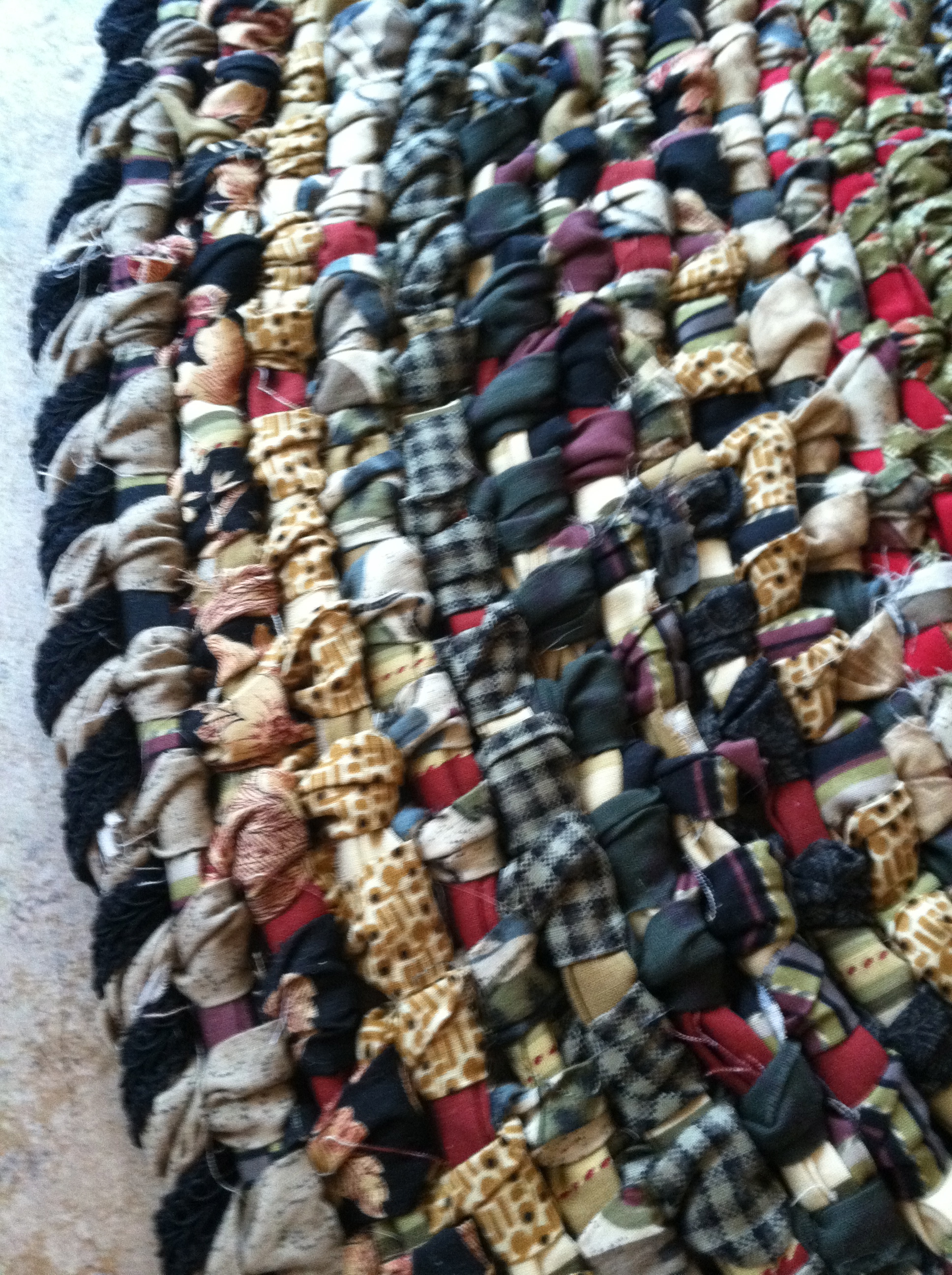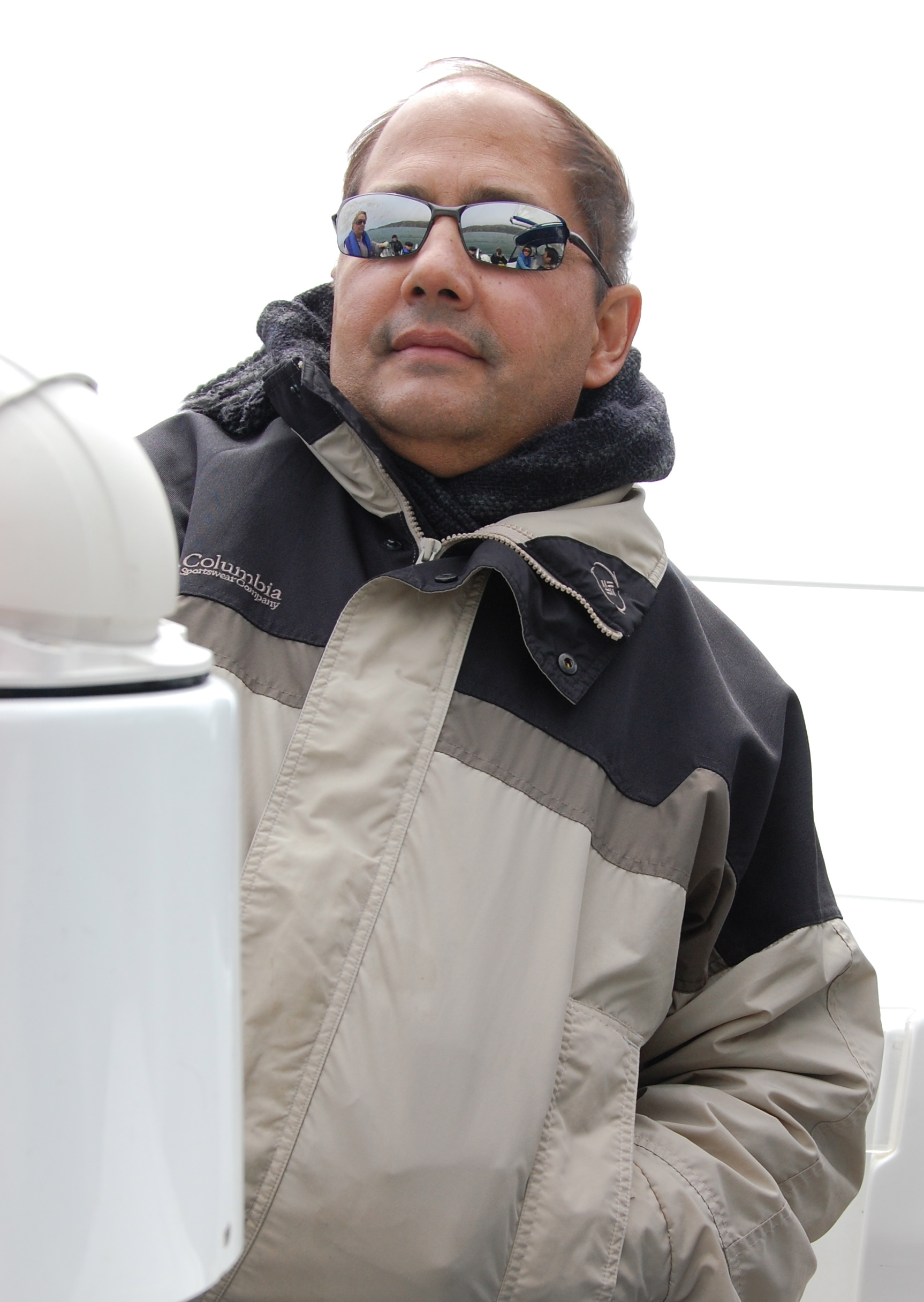 “Being there and helping someone I love, in the leaving of their earthly body, was a profound gift that I was honored she allowed me to do for her. In many ways it was she who gave me the gift and not the other way around.” Lori Puente, on the death and dying of her mother
“Being there and helping someone I love, in the leaving of their earthly body, was a profound gift that I was honored she allowed me to do for her. In many ways it was she who gave me the gift and not the other way around.” Lori Puente, on the death and dying of her mother
From Gail Sheehy’s Eight Labyrinths and the book Passages in Caregiving:
. . . . . . . . .
VIII. The Long Good-bye
This is the last turning. No one can answer your most burning question. How long? Inevitably, there will be times when you see your loved one suffering that you will likely feel: Why can’t you die? It’s enough. Then, of course, you’ll feel guilty for thinking such a thing. But it is entirely human and predictable.
What to do:
It is important at this turning to have end-of-life conversations. Find ways to encourage your loved one to talk about his or her goals for this precious last stage of life. Suggest a life review. Talk about what has given his or her life meaning, and what will be passed on. Bring in a spiritual confidante, religious or pastoral, to talk about how to find peace in coming to the end of life.
What kind of medical interventions does he or she want—or want stopped? This should have been spelled out in writing earlier, but if not, make sure a living will is up to date, very specific, and communicated to anyone involved in the care. Turn the decision making over to your loved one. This is his or her death, not yours. You are on a different journey.
. . . . . . . . .
Again, while I agree for the most part with what she is saying here, in the final installment of my blog posts exploring the Eight Labyrinths, at this point, I find it very late in the game to be having these conversations.
However, I have learned through observation that it is exactly what often happens. The denial that occurs either by the patient, the caregiver, or their family, often prevents these conversations from occurring until the bitter end. I have been surprised by this and realized, as time went on for me, that my mother and I were in many ways, very much ahead of our time. We had this conversation long before she was in dire circumstances. It wasn’t in depth or philosophical and pragmatic, but in jerking blurts of things we had our attention on. It was difficult, but we did it.
She allowed me to put Hospice in place not at the end, but at the beginning. She wasn’t thrilled about it, but she did it for me. She understood my need to have people that SHE liked around her and caring for her. One of the volunteers she didn’t like. I thought she was OK, but my mom really was uncomfortable with her. I called the Director and told her I didn’t know why, but… She immediately said, “It doesn’t matter why. It’s good that she told you and I will take care of it.” The new volunteer my mother liked very much and all was well in our world.
I often find people will withhold morphine from their dying loved one because they have a couple of fixed ideas going on.
1) it’s morphine!
Get over it. They are in pain and it eases both the pain and the breathing struggles. It opens up their air passages and relaxes them.
2) it’s stupid drops!
People have said to me, “All they gave me were these STUPID drops of morphine to put on their tongue!” It is the easiest way to administer the morphine that provides immediate, fast, relief. It is potent and powerful. Often they can’t swallow and if you are treating them at home with these drops you can gauge their discomfort by the expression on their sleeping face. If it looks troubled or strained, they are in discomfort. If they are peaceful and sleeping, they are in a good place. My mother was in charge of her own morphine administration until just days before her death. It gave her control and empowered her. It wasn’t until the very end that I slept on the couch with the stove timer set for every 4 hours that I took over this task for her. I discussed with the hospice nurse what my reasonable parameters were and was empowered to make sure she was comfortable. I was not bound like a nurse in a hospital or hospice center with tracking the drug’s dispense. Which is one of the benefits of in-home hospice care by someone who loves them dearly. It’s not a job, it’s a mission – to care for them in this deeply personal, solitary, journey.
3) they do nothing but sleep!
Yeah? So what? Do you expect them to play cards with you? Come on folks! Get your head around this. It’s different. When they are toward the end they are in a semi-comatose state. It’s OK. It means they are comfortable and going through the process. Don’t fight it. At this point I hope that things that needed to be said have been said. Communication is reduced to being in their space, holding their hand, making sure they are not in distress.
Whatever you are dealing with at this stage, remember your job, your place, your goal. As I saw it, it was to honor my mother’s wishes in her dying. To make sure she was comfortable and in control of anything she wanted to have control over for as long as she could. It was an amazing dance the two of us did really. When one night she took two of everything and was over medicated and scared, the next morning she said, “Well, I think I need to hand this over to you at this point.” I was thinking the same thing, but was so happy that she originated it so that she remained in control of her decision.
While I never thought or said, “Why can’t you just die?” She did. She would wake up in the morning and I would come in and she would say to me, “Well, I woke up again, for yet another day of this.” She would smile at me and we would sort of giggle and get on with the day. I knew it was a finite period of time, so I was in it for the duration, fully accepting it would take however long it took. I was good. That was of course, not true for my sister. She was fighting it tooth and nail. My mother, poor thing, must have been very torn between hanging around for Lynn and leaving so I wasn’t bound to her care.
I find often this conversation doesn’t occur because the patient wants to be there for their caregiver and not let them know they are done, they are tired, they are ready to say good-bye. They are often worried about us and so it is incredibly important to somehow find a way to let them know you will be alright. It’s a difficult balance but it is so beneficial. The caregiver often doesn’t want the patient to know they have given up on them. Other family members will have their take on things and it will vary wildly, and more often than not, you won’t all be on the same page. Being proactive and anticipating what is coming down the line and discussing it with everyone to keep them in the loop so they aren’t surprised or have missed steps emotionally is very generous. In that generosity on your part, you will have a calmer, more peaceful experience. While you may have the “burden” of doing everything, being willing to include everyone else as part of the group, goes a long way to easing everyone’s experience whether upfront and personal, or from a distance. If telling each family member individually is too time consuming, pick one. Keep them abreast of all that is going on and trust them to inform the rest of the clan. Work it out before feelings are hurt. Those who are not there or have not gone through something like this, may really not understand. It is up to you, whether you like it or not, to help them get there or hand it off to someone who can help you do that. Recruit the help you need so that as a family you can all grieve appropriately, and hopefully together.
I try very hard to always be respectful. If I have an opportunity to bring them a broader understanding I will. But if I see that is not something they are ready to hear, I refrain. It’s not easy for me, but it is not my zone of control. It is not my loved one or my journey. I’m gentle and do not, do not, spout off those annoying cliches. It’s just not the time and they have heard them all before. They surely don’t need to hear them from me during their painful emotional distress. I usually just tell them they are doing a wonderful thing for their loved one. Suggest they ask the hospice nurse to let them know what is going to happen next so they aren’t worried or frightened, but empowered. If I see something that could be a little better I might gently make a suggestion to them. But I’m very, very respectful. I am not the caregiver. I flow power and support to them. What do they need and want? Generally they just need some confidence and validation that they are doing a good job.
So I’m glad to move on from this series. Though I do think it was worthwhile.
In the myeloma world I will tell you that I don’t think about this or worry about it with Dave. We are happy, healthy and living our lives. But I’m aware that some of these labyrinths may need to be traveled at some point down the line. I will be ready. As ready as anyone can be.
Tackling myeloma with Dave from the outset was one that I always felt somewhat prepared for, because of my life’s experiences. He benefitted greatly from my ability to observe without bias or inexperienced preconceived ideas. It was a bit different of course, because we were embarking on saving his life, not saying good-bye. I had to reconcile with the idea that if I did have to say good-bye that somehow I would survive and keep my eye on making sure that Dave was well cared for. I planned for the worst to free myself of those mental burdens, but I hoped and worked hard for the best possible outcome. When he apologized to me for about the 3rd time for “getting cancer” (geeze!) I finally confronted him and said, “We don’t have time for regrets right now. I don’t think you have done this to me. I have learned a very important thing in my life and that is, I’m a survivor. So I don’t want anymore blame, shame, and regret. We have work to do and that is a total waste of our time and energy. I will work my tail off to keep you with me. But I am prepared for whatever comes. I love you and I don’t want you to worry about anything but getting through your treatment and having a good outcome.” He was relieved and we didn’t discuss that anymore! He and I both let it go.





















Thank you Kevin. I’m sorry about your Dad, but glad you feel a bit more empowered to clear the clutter and focus on his care. The grief we feel when losing a parent doesn’t seem to matter if it happens when they are young or in their 90s. They are our parents and it’s just damn hard. I will say that while I never thought “I wish you would just die and this would be over.” I have felt at times when I see my friends going through it with their parents, “I’m glad I’m already through this. It’s rough.” Then I feel guilty because I would have surely been willing to go through it now if I could have them in my life longer. I still miss them both very much.
Hi Lori,
I must also thank you for the wonderful job you did on this series of articles – as you had tears writing it, I couldn’t help shedding a few reading it, particularly since as I mentioned in a previous reply, I’m beginning a similar situation with my father. This has been very timely and will help a lot.
You are welcome Dianne. The nice thing about a blog and the internet is that we can read them when we are ready. It is now here for all of us when the time is right. And yes, it was hard for me to do this and not without a few tears rolling down my cheeks as I typed and edited these. I was happy to try to bring something personal to each of them to help others to relate a little better. If we have to go through it, its nice to have some idea what to expect so we aren’t blind sided, as you mentioned.
Thank you Lori for providing your thoughts on Gail Sheehy’s Eight Labyrinths in the book Passages in Caregiving. This is exactly the kind of information I need, and everything you said in right on. I need to stay one step ahead of what is coming next, so I can be as prepared as possible. I know we can’t always be prepared. I was so totally blind sided, in shock and devasted at diagnoses. MM has my attention now & I won’t willingly be such a lamb to the slaughter. I admit I couldn’t delve into these recent blogs, until I could review them with a clear mind and absorb into my soul the reality of this for my life now & in the future. So I think I know what you went through in writing them. Many thanks for the sacrifices you make to be there for us.
Thank you Karen! I forgot you were a hospice nurse, though you have mentioned it before. (Old brain cells!) In my area we had medical home hospice which is the 6 mos requirement that you mentioned. But we were also blessed to have another hospice organization, non-profit, staffed with well trained volunteers that did not have the 6 mos requirement. I was blessed to have them both working with me and my mother. Their overlap was accepted and common between the two of them, while one focused on the medical, the other focused on the respite volunteers for the caregiver. I realized later when I would learn of others’ experiences, that I was truly blessed. I also learned that it was partly due to my willingness to ask questions. Asking and learning as much information as was reasonable, helped to keep me ahead of the curve. I wanted my mother to see me as confident and calm so she wouldn’t worry. Thanks again for your expert input and sharing your personal struggle with this subject, even though you know it very well.
lori, the sheer scope of what you have delved into to share is astonishing. what a beautiful job you have done tying in your personal experiences with what ms. sheehy writes about. as a hospice nurse i often felt such despair that so many people still believe that hospice is only for people on their deathbed – and that most people do not realize that the enitre scope of their services of nurses (on/call 24/7), medical directors for each hospice “team”, social workers, spiritual care, medications directly related to each patient’s primary (hospice) disease process and all comfort measure meds, volunteers, a certified aide to render personal care, and durable medical equipment such as a hospital bed, oxygen, wheel chair, et. al, plus much more is all COVERED BY MEDICARE, and now by many private insurance plans. and if the patient does not have medicare or insurance there are tons’s of other resources hospice will go to the ends of the earth to tap into. also, the idea that hospice is only for cancer patients is a persistent misconception. hospice is for any life limiting disease, for any age, and requires a physician to certify that the patient has six months or less to live. a re-certification is required at 6 month intervals, and since no one can with complete accuracy predict exactly when death will occur, this fluidity with the best a physician can determine is reasonable. people often come off hospice for many reasons – some to resume treatment, some because their pain is under control and they gain a new mobility and quality of life, and for many other reasons. on the other hand, some disease processes are fraught with unforseen gains/losses, ups/downs, and patients remain on service much longer than ever anticipated; in these cases recertification by the doc will demonstrate that the patient continues to decline, continues to require hospice care. what you have pointed out about personal decision making, the need for a living will, and families who are going through the most horrendous ordeal of their lives and need guidance and support during what is a real crisis is so, so important. people often envision a death will bring family members closer together, when in reality, whatever dysfunction exists will be magnified in a crisis. writing about the experience with your sister was such a valuable example of that. thank you for all the time, effort, and emotional expenditure of energy you have poured into this project. on the whole, our culture doesn’t do so well with death and dying issues; it may be surprising, but even i struggled with reading and thinking of many of the issues you wrote about – it’s different now that we two, hugh and i, are both cancer patients, both of us so honed in on LIFE. now i can understand a bit better why it’s sometimes a challenge to consider that we won’t live forever, and we need to think ahead, to reflect and plan and talk to the ones we love about our end of life wishes. one might consider how much planning is involved in preparing for a birth; surely, one’s death is as important as such a sentinel event at the beginning of life. just a thought… warm hugs and thanks, karen
Thank you Nancy. It is difficult, but so necessary. I can’t always know the road ahead, but I like to know as much as I can expect so when I see it, I recognize it and don’t feel ambushed! I tweaked a bit one of the paragraphs on the “conversation” that often doesn’t occur to include reasons and tips on keeping the other family members in the loop. The ones who aren’t dealing with the daily grind of it. I’ve seen some families breeze through it together, all assisting and on the same page, but most often I see a bunch of people bent out of shape and really, they just need to feel included. Even if they can’t be due to distance or circumstance. Moving all their emotional support to the primary caregiver is invaluable, but often overlooked.
Thank you for discussing a difficult topic. I have saved your article to share with my family in the future.